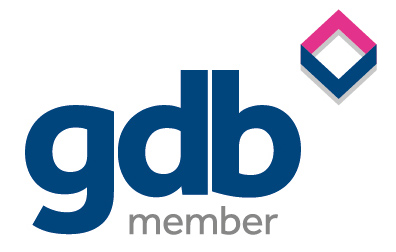Harvey John
Unit 2 Ferry Wharf
Hove Enterprise Centre
Basin Road North
Portslade, East Sussex
BN41 1BD
We’re joined by Russell Potter for the March edition of the Tech CFO. Russell has worked across the media and technology sectors over a 20-year period and is well-versed in growing finance teams within VC/PE-backed businesses. Russell has been able to provide his expert insights on the unique role of a tech CFO as well as the rise of technology within finance and beyond.
Tell us a bit about yourself and your background…
I grew up in Essex in what was a fairly unremarkable market town and went to a local comprehensive school.
Despite strong A-levels, I felt I’d had enough of academia and decided to forgo university and go straight into work. I was good with numbers and was interested in economics so going into finance felt like a natural thing to do. I’d studied GCSE & A-level Accountancy and I guess from that point on, I was hooked into the magical world of debits and credits!
You’ve had quite a fascinating journey up to now, how have your roles varied from Practice, through to media, and then technology? Any key differences culturally/technically, etc.?
What was unusual looking back was that, while most of my peers went to university and I certainly had the grades to do so, I did the opposite and went into working for a small accountancy practice in Norwich, a city I had no connection with.
At 19 I had a job, mortgage, and car and was studying for my ACCA in the evenings and weekends.
My work consisted of mainly ‘incomplete records’ jobs; creating sets of accounts from bank statements, boxes of invoices, and paying-in slips.
I remember our office had one computer which had to be booked in advance otherwise everything was done in handwritten ledgers. The fax machine was the height of communication technology at the time. Preparation of accounts in this way gave me a grounding in the fundamentals of accountancy that I believe has stood me well over my career.
I enjoyed the variety of experiences in working for a small practice, anything from counting sheep on a stocktake of a farm to, in a slightly macabre turn of events, auditing the Norwich crematorium and being given the room to work in where they kept people’ ashes before collection.
Ultimately, it can begin to feel a little routine so, having been involved from the beginning in supporting small businesses with VAT, payroll, management accounts, and bookkeeping, it was relatively easy to transition into an industry role in an SME.
Music is my passion so my dream job was to work for a record label and, with a little bit of luck, I managed to navigate my way into the music industry.
Working in the music industry in the late 90s and early 2000s, I saw firsthand the disruptive nature of technology with the emergence of digital music formats. It became increasingly clear to me that technology and, more specifically, software was becoming a dominant force in everything I did in my career and I began to take a real interest in how software was changing the world.
I gravitated towards businesses that had software at the core of their business proposition and it was working alongside software developers, product managers, and the like that opened me up to a whole new language and mindset that informs how I work to this day.
What are the most important traits in becoming the CFO of a startup?
In being a CFO of a start-up, two core factors dominate your thinking. First, you can expect a fast pace of change in the business as it grows or pivots and second, you’ll have limited internal resources in the finance function. Being able to draw on a large reserve of hands-on experience working in and for SMEs means that I’m well-equipped when facing all manner of circumstances.
The mindset piece is about adopting an ‘agile’ approach to work. This comes from my experience working with software and product teams and is a methodology for software delivery that can be applied in a broader business context. To use a crude example: in a startup, if you need to build a financial budget, it’s not about spending a month building a sophisticated model but instead building a minimum viable product. This can be something in Excel that’s perhaps less sophisticated but built in a week that gets you 80% of the way there 20% of the time which you can then build on and iterate.
Another way to think about it is not allowing perfection to be the enemy of progress.
It’s also important to keep up with the pace of change and requirements of the business in a way that’s ‘just right’ so you’re not spending too much time and money on finance initiatives and overly bureaucratizing too early. This could mean that instead of implementing a purchase order system, you get involved in all key procurements over a certain threshold. In other words, start with quite informal and flexible processes and controls and mature them appropriately as the business grows.
How does the role of the CFO change in a technology company? With fundraising, EMI schemes, etc.
Whilst not unique to tech startups, one of the aspects of the CFO role will likely be the heavy emphasis on using the technology internally and the costs/benefits derived therefrom.
Since the whole ethos of the business is based on tech, these companies are much more open to leveraging its use and far more supportive of initiatives that automate or improve processes. It’s basically in their DNA.
However, in a startup, you have to exercise a degree of pragmatism when looking at what software tools the finance function adopts. In some circumstances, it can be inappropriate to invest heavily in automation too early.
For example, a billing solution in an enterprise B2B context if your volumes of customers and invoices are low and the business is still playing around with its pricing and go-to-market strategy.
In this context, the agility you get from manual billing and non-standard contracting means you’ll get little value from an automated golden path’ and you’ll waste time and money if you try and implement something like this too early.
Conversely, if you’re in a high-volume B2C context, you’ll need to automate the billing and revenue side of things and there’s value to getting this scalable early.
In any business, there will be tools that improve the automation of processes, such as staff expense solutions. Regardless of the size, these should be considered simply because they’re just painful at any scale and relatively easy to implement. However, for a CFO in a growing early-stage tech business, it’s important not to get carried away with large-scale and costly finance-related tech initiatives too soon.
Excel is probably ok for your forecast modelling in most cases in a startup context.
Outside the core financial system, therefore, in most cases, aim for ‘good enough’ so you’re not burning time and cash but, even if it’s outside your comfort zone, make sure you’re still involved in or driving more growth-based tech initiatives such as marketing automation or sales enablement tools.
I’d also add that it’s fundamental that CFOs understand the software cost base of the entire business or what can collectively be called the ‘technology stack’. There will almost certainly be many different software tools being used all over the business with little or no controls on procurement and, as a result, all sorts of issues lurking from a data, compliance, legal, and cost perspective.
It’s also a useful precursor to driving a wider program of promoting good data governance and breaking down information silos.
How do you view the rise of tech in finance, any particular trends you’re keeping an eye on?
The rise of tech in finance creates several practical issues which represent significant challenges. I believe these challenges boil down to three key things; a skills gap in finance positions, the volume of software solutions in the market, and the language and methodologies around the software.
There’s an overwhelming choice of technology available not just in terms of the number of specialist functions served but also in terms of the number of vendors. The solutions will typically integrate with most core cloud-based finance systems and, if not, there are API integration platforms to help. Many consulting companies will help you implement your chosen technology solution. Understandably, this creates an anxiety-inducing choice paradox.
One also ought to remember that software vendors spend large sums of money on marketing materials and heavily incentivize salespeople to drive growth and it’d be naïve to always believe the hype. I’d argue that it’s sensible to retain a degree of healthy cynicism when navigating digital transformation projects.
My advice would be to talk to others in your network who’ve implemented the same tools and try to narrow down the vendors quickly based on a core set of requirements and other reviews on websites like G2 Crowd. Ultimately, provided you have a clear vision of what you want to achieve and you’re following personal recommendations, go with your instinct.
I recently oversaw the implementation of a finance system and discovered partway through that the tool was unable to post a multi-currency journal even though it handled multi-currency in the cash book and other ledgers. It didn’t even cross our minds to ask if it could do this. The lesson here is that apart from having to be very clear from the outset what you want the solution to do, never assume anything.
The tools do continue to evolve however and, with enough pushback from users, functionality gets continually added to their roadmaps and rolled out.
The other challenge can be the language around software and its implementation; APIs, connectors, Integration Platform as a Service (iPaaS), technology stack, roadmaps, user stories, epics, sprints, scrums, etc. To a lot of people, this can be confusing or at least disorientating which is why I advocate partnering with internal resources on a cross-functional basis on all but the smallest of projects. In the context of a tech start-up, this could be borrowing a dev ops or an IT ops person’s time.
Finally, it also helps to have a broad understanding of the philosophy underpinning software development and delivery. I’d recommend finance professionals read a primer on ‘agile’ as a good place to start but also talk to people in tech and don’t be afraid to ask questions.
I believe the trends in finance in terms of tech will be towards professional finance leaders upskilling, with professional qualifications adapting to meet these needs. I’ve already seen this with the ACCA and I expect to see curriculums bringing in a stronger technology element encompassing basic coding, agile, and cloud architectures.
Software solutions will continue to mature and consolidate and I hope that there will be a longer-term trend towards technology harmonization as a result. For the time being, to succeed, I believe finance professionals need to be brave, curious, decisive, open to learning new concepts such as ‘agile’ and the language around it and have a dose of healthy scepticism in their dealings with vendors if they are to push the tech agenda in finance.
What, in your opinion, is the key draw of working on the finance team of a startup, why should others consider this path?
The key draw for me is the breadth of exposure you get in a small business and the pace of change. The exposure to the wider business in a startup and the sense of building something and growing out the function as the business grows is incredibly satisfying to me.
What do you look for when hiring?
I’ve always favoured hiring people who don’t want to be in the same role in two years and have the ambition to progress. This is particularly helpful in startups where you have limited resources and small teams where people need to wear multiple hats.
For example, hiring an AP person who’s studying for a professional qualification and eventually wants to work in FP&A. If done right, this gives you the ability to work with them on a career plan that starts with the basics and includes automation projects thus making the AP process as efficient as possible, giving them a grounding in finance and over time allowing you to give them exposure to FP&A work. Aligning their goals to the needs of the business which are often also growing and evolving in this way is perfect if you can achieve it with your hires.
Beyond their ambition and flexibility, I increasingly look for their digital skills or their openness to embrace tech.
Which personal challenge soon are you looking forward to the most and why?
I’m looking forward to continuing to broaden my skill set outside of finance in areas such as legal, HR, Sales, Marketing, and Operations.
As a CFO, particularly in a startup context, it’s expected that you’ll have a view on these things and if it’s not a deep understanding, at least a good awareness that allows you to drive change.
I find myself reading much more widely now outside of core finance and it’s part of an attitude of continuous development that is important to me and which will hopefully continue to challenge me.
Could you recommend to our readers one or two books that helped you during your entrepreneurial endeavours?
A useful book to get an overview of ‘agile’ is Being Agile in business by Belinda Waldock. I also found Good Strategy Bad Strategy by Richard Rumelt an engaging and insightful book on strategy. It was published in 2011 but I still see it referenced by investors and entrepreneurs to this day, as the concepts are timeless. Reading more books generally would be my plea to finance professionals and not technical or finance-focused ones.
It’s a cliché but careers become less about technical know-how and more about people the further you progress.
Thank you for your time, Russell, some great observations and insights there and all the best with your next venture!
Callum Mckenna is an Associate Director in the Accountancy Division at Harvey John.
Search our latest accountancy and finance jobs.
If you would like to see our company updates and industry insights, follow our LinkedIn page.
Author

Believing in quality over quantity, Callum takes a consultative approach and delivers results with a 3:2 CV-to-interview ratio, ensuring clients aren’t bombarded with irrelevant CVs. If he can work exclusively, he knows he’ll deliver the best outcome. And if you prefer a recruiter who picks up the phone over endless emails, you’re in the right place.
In a candidate-driven market, Callum uses his accountancy recruitment expertise to attract and approach the best talent.







